Workforce Development
Ensuring stable, quality jobs for Men and Boys In The 21st Century
One of the most important challenges facing modern society is ensuring stable, quality jobs for the future. Changes in the modern economy have had a particularly profound and negative impact on working class men, who have yet to adjust to the switch from manufacturing to an increasingly service and technologically-based economy. The persistent gender gap in wages between men and women and the proverbial “glass ceiling” highlight the need for men to re-tool their attitudes and reject sexism in the workplace. As we make the way for future generations of young men and women, we need to explore more environmentally and socially sustainable economic systems. The Center For Men and Boys supports comprehensive economic and labor policies that support both men and women.


Goals
Education
No Child Left Behind
At CMB we believe in the principle of “No Child Left Behind,” but we see far too many males being left behind in today’s educational system. Far too many boys get low grades, are suspended or expelled, and don’t graduate. In addition, far too many males are diagnosed with a learning disability and assigned to special education. While we acknowledge the diversity of opinion on the question of whether males are doing better or worse in education compared to girls, we know that males can and must do better. As a result, CMB supports comprehensive educational strategies aimed at reducing the “gender gap” within the “achievement gap” and instilling values of lifelong learning.
Goals:
What we think, we become
Mental Health & Wellness
Addressing the mental, emotional, and behavioral well-being of men and boys
More than 16 million men in the United States have a diagnosable mental illness. Yet, only 38% of males with any mental illness (AMI) receive mental health treatment. More discouraging is the fact that less than 66% of men with severe mental illness (SMI) receive treatment. These statistics shed light on only part of the story, failing to address the profound pain and suffering that often goes unaddressed for men and boys who suffer from a mental illness.
Men’s Issues
Community of Practice Around Men’s Issues
One of the major efforts of CMB is to build a community of practice around men’s issues. We are committed to growing the body of knowledge that gives society more insight and perspective into the lives of men and boys. We believe that the social sciences can inform practice wisdom, where parents, professionals, and people who work with males can develop deeper knowledge and skills that allow them to be more effective working with men and boys. Therefore, at RMP will offer seminars and training institutes to encourage professionals to do state of the art research and analysis on issues that impact men and boys. We hope to change the very nature of the way men and boys are conceptualized toward a more integrative approach to gender.

